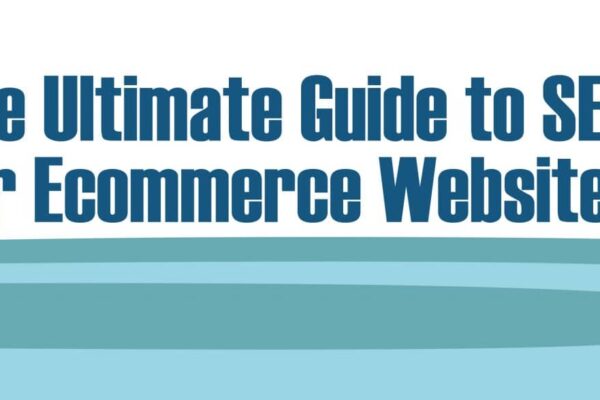As the internet cements its place as the most important and popular tool for marketing in the 21st Century, more and more emphasis is being placed on a website’s content and how to leverage it. In a recent study, more than 8 out of 10 of companies with active online marketing strategies forecast higher spending in this area before Q1 of 2017. The obstacle, however, lies in the continuity and relevance to the rest of their organic game plan. In fact, a full 4 out of 10 firms believe that this is where they fall short.
As this is an inexact science, and many contributors are fairly new to Content Marketing for this purpose, the keywords they are making use of aren’t optimized. They’re missing the bull’s eye in terms of consumer searches and aren’t effective in hitting the notes of efficiency and consistency. The question then becomes, what are those compelling keywords which create pertinent internal and external links?
Here’s a 5-ingredient mix to whipping up a sweet keyword delight:
(1) Have a plan and stick to it
Establish in advance what that content (E.g. Blog entry) is intended to accomplish. Are you looking to draw attention to a particular service, promotion, expansion, issue, or industry trend? Are you looking to sell an idea, product, service, or perhaps just educate your reader on a subject they should be aware of? Is there a technological innovation you need to announce, and create excitement over?
Whatever the objective is, identify it and make sure that all elements of the planning and writing of the new content follow suit. In this way, your writing will remain structured and guided and not deviate into randomness.
(2) Perform a “Mind-map” of your ideas on paper
Similar to brainstorming, a Mind-map is another way of getting down on paper as many ideas as possible (without judgment) and organizing them into rational thoughts. The author needs to sit down before composing paragraphs, and establish a running list of keywords which will be employed. The mindset to be employed here is not “how do we want to position our business?” but rather “how will our potentials customers seek out the services we offer?”
Among your company’s offerings, what is most likely to draw attention, and what terms will people use when seeking them out online? Bear in mind much of your target market doesn’t use all the proper industry terms, and also don’t write the same way they speak.
Also important to keep in mind is that people sometimes search using complete sentences or long phrases, and not just individual words. This brings to light the difference between quality and quantity: single words and short expressions will generate volume because of their generality, but longer (more specific) phrases will more likely attract the right type of client to your website because they are more targeted. Shotgun approach vs Sniper rifle.
Furthermore, those shorter generic keywords/short phrases are probably already used by many of your competitors, making them more difficult to rank on top in search engines. One example would be a dental clinic which specializes in Oral and Maxillofacial Surgery: it should focus on the keywords “Oral and Maxillofacial Surgeons” instead of just “Orthodontist” or “Dentist” because it will attract a far better defined and more lucrative reach.
(3) Be open to suggestion
It would be foolish to leave this generation of keywords and crucial terms/topics to only one person, as your imagination can only take you so far. And if two heads are better than one, then ten are better than two. The “suggestion” part of this approach is not only open to the input and feedback of your coworkers, but also to the competition (such as what they are doing with their websites) and —most importantly— your existing and potential customers.
Several sources of consumer research are available to find out how exactly people from different demographic groups and professional backgrounds search the web. The benefit of keeping a proper customer database is that you can ask these questions directly to your clientele.
Another excellent source of input available on most search engines is typically called “searches related to” or “suggested searches” found at the bottom of the search results page. You’ve already seen these on Google, Yahoo, Bing, YouTube, Wikipedia, and their brethren but likely underutilize them. This is a great path which will steer you to additional keyword ideas linked to terms or subjects that you are looking for, and didn’t even realize it.
(4) Don’t reinvent the wheel: it’s already rolling
Good news: you’re not alone in this quest. There are many handy tools out there, ready and at your disposal to validate (or discount) the concepts and assumptions formulated in the previous steps. They will assist you in gauging a keyword’s difficulty, further opportunities, and pertinence (defined by the user) of keywords and their expected impact.
More specifically, at this stage of scrutinizing keywords, you should be employing:
* SEMrush
-> Permits you to view and dissect the competition’s advertising copy and keywords. One can then choose to either rank higher on those used keywords, or conversely use keywords not used by competitors.
-> A resource that allows you to query a specific keyword and generate a list of questions the public asks, directly related to that keyword. In this manner, you can formulate content strategies targeting questions in the precise manner people are using them to search.
-> Enumerates other similar words which reveal historical statistics about these lists, to preview how those keywords will perform and predict the volume and traffic they will likely generate.
-> A relatively new instrument, it behaves similar to the Google tool and it too has proven extremely relevant.
(5) Evaluate your keywords’ performance using a well-defined model
As all of this lovely-sounding rhetoric won’t help your company’s bottom line without results, and all of these keywords do in fact have monetary value, it’s crucial to follow up your strategies with an evaluation of their effectiveness. Like most tactics in business, however, most of the time is spent planning and executing, and not enough on gauging their performance. It not only takes time and effort, but can also be painful when your carefully laid plans needing to be retooled. For these reasons, you need something simple and efficient to produce tangible results.
Several tools have been formulated to measure one keyword’s value compared to its cousins. By using a mix of organic data from sources like Google or Yahoo, and the CPC (Cost-Per-Click) of the precise keyword in question, one can assess its true worth. This is often measured in terms of Annual Potential Value.
To calculate a keyword’s monetary worth, we must first determine its annual search volume and multiply that by the best SEO-positioned CTR (Click Through Rate) to get the optimal number of visits there could be on a website using that particular keyword. You then multiply that result by its average CPC to arrive at the estimated value in dollars. Every professional digital marketing agency must use this formula.
Sample calculation:
The Annual Potential Value of “Caribbean Cruise”, with a search volume of 575,000 yearly, an SEO position CTR of 19% and an average CPC of $4.10 would result in a value of $447,925 (575,000 x 0.19 x 4.10).
The conclusion here is that assigning an empirical value is vital in prioritizing keywords, and thus understanding how much traction a product/service can attract based on exact words and phrases. It is also key when allocating funds and manpower to your content marketing activity, especially when wrestling over new budget dollars with upper management.
A work in progress
Be it a large retailer, small law firm, or a special interest group, implementing an effective –and evolving– marketing content plan is crucial. To stand out from the competition, your content must derive from an optimized SEO strategy which uses pertinent and highly searched keywords. And just as the digital landscape is constantly changing, so must your keyword values and popularity: To remain optimized, keep your strategy fresh, current, and up to date.






